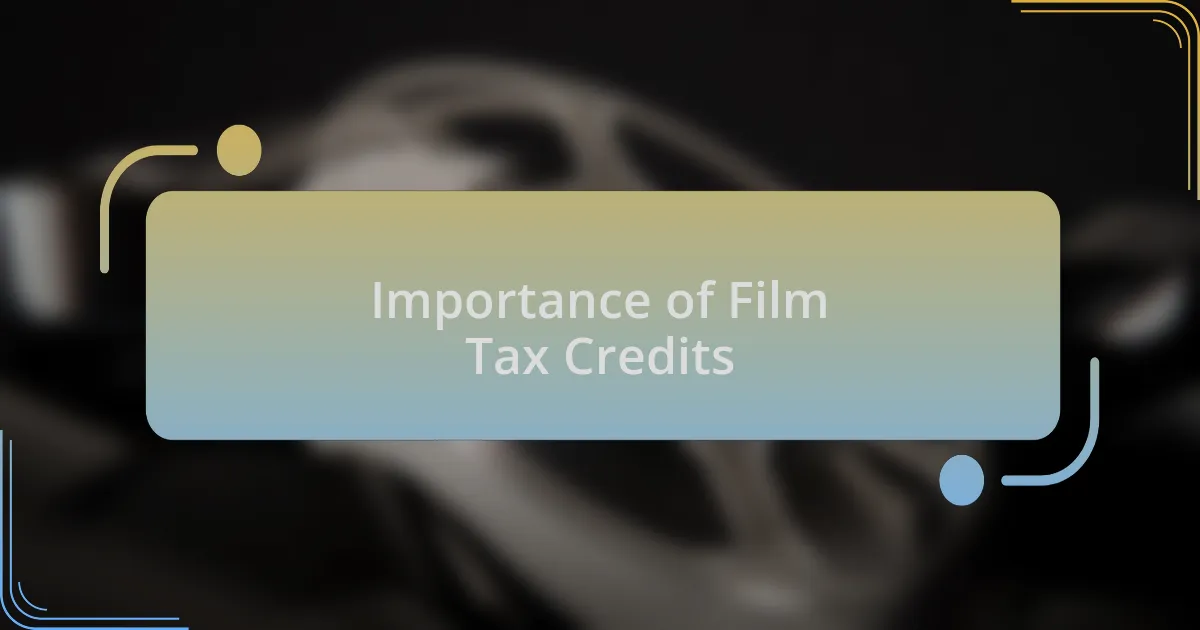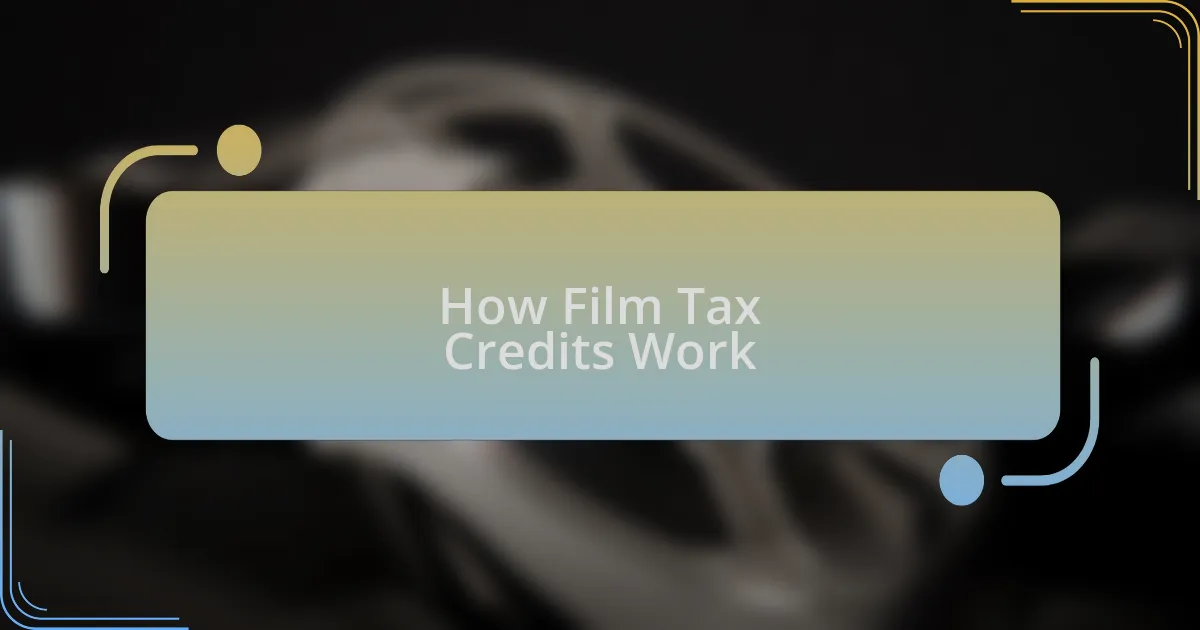Key takeaways:
- Film tax credits significantly alleviate financial burdens for filmmakers, enabling better budget management and creative investments.
- The application process for tax credits can be simplified with careful preparation and understanding of eligibility requirements, leading to maximized savings.
- These credits encourage filmmakers to explore diverse locations, enhancing both budgetary outcomes and narrative depth.
- Timely submission of paperwork is crucial to fully leverage tax credits and avoid potential setbacks during production.

Understanding Film Tax Credits
Film tax credits can be a game-changer for producers, helping to alleviate some of the financial burdens associated with filmmaking. When I first navigated the complexities of these credits, I was overwhelmed by the details. Could I really save that much on my budget? It turns out, understanding how these incentives work made all the difference in my project’s viability.
One crucial aspect of film tax credits is that they vary significantly from one location to another. For instance, I learned that some states offer more generous credits than others, which pushed me to consider shooting in places I hadn’t initially planned. The excitement of discovering potential savings felt almost like finding hidden treasure, prompting me to dive deeper into the specifics of each program.
Moreover, the application process itself can feel daunting, but it doesn’t have to be. I remember the countless hours spent researching eligibility requirements and documentation. Was it all worth it? Absolutely! I found that careful preparation and attention to detail not only simplified the process but also maximized my potential credits, ultimately supporting my creative vision.

Importance of Film Tax Credits
Film tax credits play a pivotal role in making filmmaking more accessible and feasible. During one of my projects, I witnessed firsthand how these credits transformed our budget from constrained to liberating. When I discovered we could reclaim a significant portion of our expenses, it felt like a weight had been lifted off my shoulders – I could finally allocate funds toward enhancing production quality instead of just covering basic costs.
To me, the importance of film tax credits goes beyond just the financial aspect. They encourage filmmakers to explore diverse locations and foster local economies, creating vibrant film communities. I recall my surprise when filming in a less traditional state not only provided budget benefits but also led to stunning, unique visuals that enriched our story. Have you ever thought about how your filming location impacts not just your budget but also the narrative?
Navigating the world of film tax credits also cultivates a sense of collaboration among local governments and filmmakers. In my experience, the positive relationships I built during this process often led to additional support and resources from the community. This synergy resulted in a more enriching filming experience, reminding me that understanding tax credits can open doors to not just savings, but also valuable partnerships.

How Film Tax Credits Work
Understanding how film tax credits work can sometimes feel like navigating a maze, but it’s much simpler than it seems. These credits reduce the overall cost of production by allowing filmmakers to receive a percentage back on certain expenditures, often related to crew wages, equipment rentals, and location fees. I’ve encountered cases where the credit reduced our overall production costs by up to 25%, which made a noticeable difference in our budget planning.
At times, I found myself pondering the intricacies of eligibility requirements. Each state or province has specific guidelines about what qualifies, which can sometimes feel overwhelming. I remember a project where we initially overlooked potential expenses just because I wasn’t fully aware of the specific state rules. Fortunately, a local film commission representative helped clarify what we could claim, ultimately leading to unexpected savings that we reinvested in our team’s morale.
Timing is also crucial when working with film tax credits. In my experience, filing the necessary paperwork early in the production process ensured we wouldn’t miss out on the benefits. There was a critical moment when we nearly delayed our application submission, and I can’t emphasize enough how staying organized can prevent headaches later on. Have you considered how timely planning affects not only your budget but the overall success of your production?